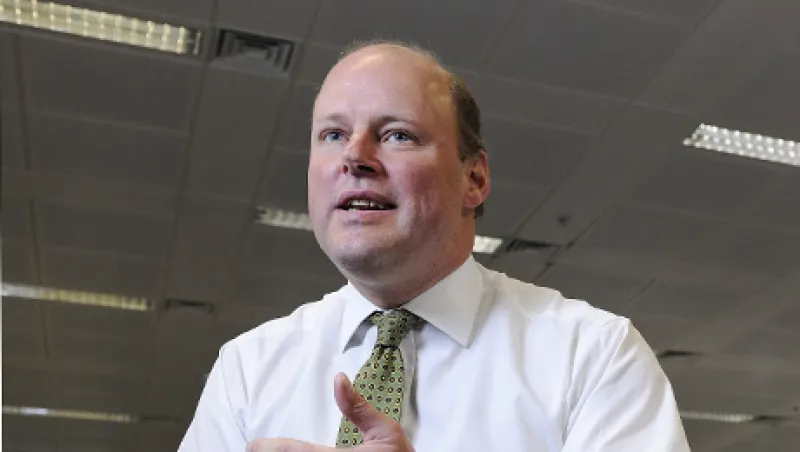Less than five years after its ill-fated acquisition of ABN Amro and three years after its effective nationalization by the U.K. government, Royal Bank of Scotland Group has bowed to the inevitable and pulled the plug on its effort to become a full-service investment bank.
RBS announced on Thursday, January 12 that it would exit the equities, merger advisory, and corporate broking businesses and slash 3,500 jobs in its Global Banking and Markets division. Going forward, the bank will concentrate its capital markets activities solely on its core strengths of fixed-income trading and underwriting, and foreign exchange.
More broadly, RBS is responding to the general downturn in investment banking by trimming costs across the entire Global Banking and Markets division, which is led by CEO John Hourican. The moves will reduce the unit’s headcount to below 14,000 compared with 19,000 in the first half of 2011. The division will also reduce its balance sheet by 25 percent, to £300 billion ($460 billion) over the next three years, which will reduce its need for wholesale funding by £75 billion.
The persistence of RBS’s investment banking ambitions, even after outsized bets on mortgage-backed securities by the Markets division nearly caused the bank’s failure, remains one of the biggest ironies of U.K. banking. But pressure had been growing on RBS to retrench. In recent months, Chancellor of the Exchequer George Osborne called on RBS to curb its riskier activities, the Financial Services Authority published a stinging report blaming the bank’s troubles on a glaring lack of risk controls, and the Independent Commission on Banking recommended that U.K. banks ring-fence their retail activities from investment banking. The commission’s proposal, which the government has vowed to adopt, will make it more expensive for investment banking units, at RBS and other big U.K. banks, to raise money. Costs at RBS’s Banking and Markets division would increase by about £1 billion a year if it had to fund itself on the wholesale markets and meet Basel III liquidity requirements without the help of the parent bank’s ratings and deposits, the banking commission estimated.
In announcing the cutbacks, CEO Stephen Hester promised to reshape the markets business into one that was “more conservatively funded, more efficient, and with better, more stable returns for shareholders overall.” He also praised the divisions’s overall performance since the dark days of 2008. “Our investment bank has produced an average return on equity of 19 percent and delivered over £10 billion in profits since 2009,” he said. Indeed, Global Banking and Markets delivered nearly half of the group’s pretax profits in 2009 and 2010.
RBS typically ranks among the top 5 banks in global fixed-income trading, according to data from Coaliton, a London-based financial services data provider, and in the top 10 in European debt capital markets underwriting, according to data provider Dealogic.
Going forward, Hester set a return on equity target of 12 percent for the Investment Banking division, but even that reduced level will be difficult to achieve. In the first nine months of 2011, ROE slipped to 10.7 percent as revenues, hit by the drop in global bond trading, slipped to £5 billion from £6.3 billion a year earlier. Simon Adamson, London-based banks analyst at CreditSights Inc., said the new ROE target “looks ambitious to us.” Senior investment bankers say privately that, for European investment banking as a whole in the next few years, single digit returns are more realistic.
The equities and advisory businesses that RBS is shedding are second-tier at best. They generated only £220 million in revenues in the first nine months of 2011, or 3.3 percent of Investment Banking division’s total. Apart from equities trading, none of the operations managed to achieve a top 15 positions in the relevant league tables. Still, the move is a humbling one for RBS. The bank had wanted to expand those operations and build its investment bank into something grander than a specialist bank in FIC, or fixed income and currencies. The bank had no presence in equities and corporate broking before 2007, and those operations provided one of the key rationale’s for the disastrous ABN Amro acquisition.
RBS said the equities businesses could either be closed or sold. Sources at the bank say that so far, few potential acquirers have emerged, although the U.K. corporate broking unit Hoare Govett is attracting some interest from mid-cap London brokers Oriel Securities and Numis Securities. The group, however, has not set a tight timetable as it says the changes will be implemented over three years.
RBS will rename its fixed-income and currency business as Markets and move its corporate banking business into a new International Banking division. Hourican will take charge of both operations.
RBS’s share price was up 7 percent at 23.23 pence in the afternoon of January 12. The U.K. government, which bailed the bank out in 2008 and injected £45 billion of capital, owns an 83 percent stake.






